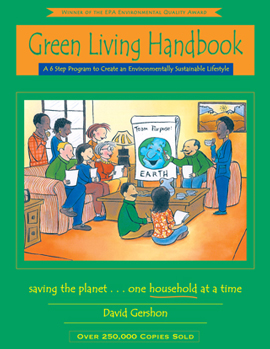CITIZEN SUSTAINABILITY ASSESSMENT
A Demand Management Tool for Assessing Citizen Stewardship of the Community’s Natural Resources
A starting point for demand management is to assess how well a community currently benefits from citizen resource conservation and the potential for improvement. In this regard, U.S. EPA’s Office of Urban and Economic Development provided Empowerment Institute funding to develop a tool which enables municipal decision-makers and citizens to evaluate how sustainably they are using the community’s natural resources. This Citizen Sustainability Assessment is the product. It will help a municipality assess:
- The effectiveness of the various municipal policies and programs that enable citizens to conserve the community’s natural resources and protect it’s environment, identifying the incentives and disincentives built into the system.
- The potential of a Sustainable Lifestyle Campaign to support the municipality’s commitment to citizen resource conservation.
The Citizen Sustainability Assessment is divided into sections on solid waste, water, energy and transportation. In each section the user is guided by a series of questions. If the municipality is doing a self-assessment, it will need to appoint a lead agency or staff person to manage the process. This agency or person will then identify representatives of each of the appropriate agencies to do the self-assessment.
If the assessment is performed by a citizen advocate or group, they will need to research the data. This will be a remarkable education about the natural resource management of the community. In the beginning of each section there is a list of likely agency sources for the needed information. If the information is not in a readily usable form, persevere! In most cases the data are available, but may need to be interpreted. If after due effort, the data are not available, this knowledge, when remedied, will help the agency improve it’s ability to do performance evaluation. For this feedback to be well received by the agency, it needs to be presented in the spirit of collaboration. If lack of time to institute changes is a concern for the agency, suggest that you or your citizen group are willing to provide volunteer help, if useful.
In some cases it will be seen that a new policy needs to be adopted or the program improved. This is where this citizen assessment tool can serve as a catalyst for sustainable community development. To create change will generally require combined advocacy from within and outside the agency. A collective effort between the city and its citizens to improve the community’s environmental sustainability is one of the major outcomes of this assessment tool. Since citizens often need municipal services and programs to enable their adoption of sustainable lifestyle choices, and municipal agencies wish citizens to participate in its programs, a mutually beneficial partnership can be developed. And, as citizens take greater responsibility for natural resource sustainability the entire community benefits.
There is much at stake for the future of your community—preserving its natural resources will enable current residents and future generations to enjoy those same resources. Your actions can be of lasting value to your community. Success to you and your community on your path of sustainability!
ASSESSING THE SUSTAINABILITY OF YOUR COMMUNITY

Residential Solid Waste Management
The agencies involved in solid waste management may have different names in each community. Generally they will fall under the following categories: municipal public works or solid waste agency, recycling coordinator, county or regional solid waste agency, private solid waste hauler or recycling hauler, local transfer station, and local landfill operator.
Residential Water Management
The agencies involved in water management may have different names in each community. Generally they will fall under the following categories: municipal public works, water bureau, county or regional water agency, waste water treatment plant.
Residential Energy Management
The agencies likely to be involved in energy conservation will generally fall under the following categories: municipal energy office, state energy office, electric utility, gas utility.
Transportation Management
The agencies involved in transportation management may have different names in each community. Generally they will fall under the following categories: regional transit authority, municipal transportation or traffic agency’ regional or state air quality control agencies, and regional or state departments of transportation.
BECOME CERTIFIED AS A SUSTAINABLE LIFESTYLE CAMPAIGN LEADER

A Sustainable Lifestyle Campaign leader certification is based on Empowerement Institute’s Social Change 2.0 community organizing framework. As part of the certification, you will learn how to facilitate an empowerment training, provide empowerment coaching, and use the Social Change 2.0 framework, strategies and skills to architect a transformational community intervention. You will also receive the Sustainable Lifestyle Campaign training scripts, organizing templates and guidance on how to customize the campaign to the unique needs of your community and project.
IMPLEMENT THE GREEN LIVING PROGRAM IN YOUR COMMUNITY
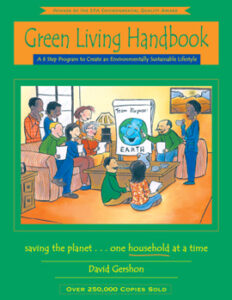 The Sustainable Lifestyle Campaign is an education and outreach program to assist local governments, utilities and community-based organizations in implementing the Green Living Program. Empowerment Institute offers Social Change 2.0 community organizing leadership certification focused on implementation of the Sustainable Lifestyle Campaign and a customized community training.
The Sustainable Lifestyle Campaign is an education and outreach program to assist local governments, utilities and community-based organizations in implementing the Green Living Program. Empowerment Institute offers Social Change 2.0 community organizing leadership certification focused on implementation of the Sustainable Lifestyle Campaign and a customized community training.
IMPLEMENT THE CHILDREN'S VERSION OF THE GREEN LIVING PROGRAM
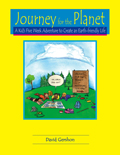 Journey for the Planet
Journey for the Planet
A Kid’s Five Week Adventure to Create an Earth-friendly Life
Journey for the Planet is a children’s version of Green Living Program for kids 8 to 12 years old. This program can be delivered in a classroom, after-school club, youth organization or for children of adults taking part in an EcoTeam. It is complemented by a twenty-six-lesson plan educator’s curriculum called the “Coach’s Guide.” Empowerment Institute offers a Journey for the Planet teacher certification.
LEARN ABOUT SOCIAL CHANGE 2.0
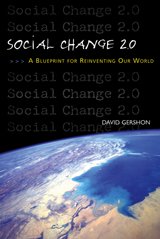 To learn more about the Social Change 2.0 framework and research underpinning the Green Living Program see Social Change 2.0
To learn more about the Social Change 2.0 framework and research underpinning the Green Living Program see Social Change 2.0
SUSTAINABLE LIFESTYLE CAMPAIGN TESTIMONIALS
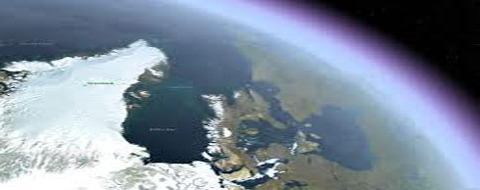
“The program offers a common sense approach to environmentalism. [One participant says] ‘I love our neighborhood and this is an opportunity for us to make it an even nicer place to live together.’”
– The Boston Globe
